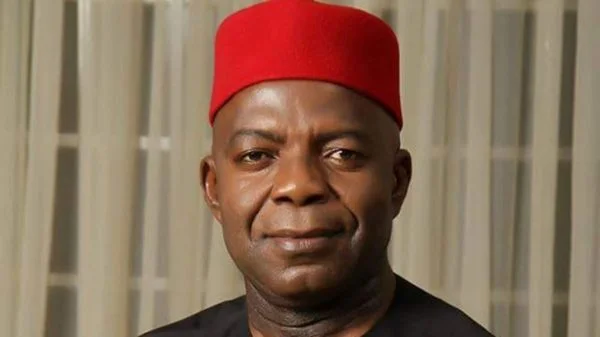The Chairman, Abia State Commission for the Welfare of the Disabled Persons, David Anyaele had said that Abia State Governor, Dr Alex Otti is committed to prevention and reduction of incidence of disability and leprosy in the state.
Anyaele, in a statement issued to newsmen in Umuahia on Saturday, said that the governor demonstrated this through enhancing access to healthcare services to all Abia residents.
He stated this when members of the Integration Dignity and Economic Advancement (IDEA-Nigeria) and the state chapter of the National Association of Persons Affected by Leprosy paid an unscheduled visit to his office on Friday.
He stated that the governor launched the renovation and remodeling of 200 primary healthcare centres across the 184 wards in the state a few days ago.

Also Read:
- Paternity dispute: Court cautions ex-minister’s lawyer over frivolous adjournment
- Afenifere appoints Dele Farotimi as Organising Secretary
- No better time than now for 24-hour port operations -Ministers, others
- Ibom Entertainment Forum begins membership re-validation exercise
- Sanwo-Olu celebrate ex-Deputy Governor Pedro at 70
Anyaele said that Otti’s plan was to equip those centres with independent power supply, efficient water supply systems, and other support infrastructure to enhance quality healthcare delivery services.
According to him, that’s the reason behind 35 percent budgetary allocation to healthcare and education sectors in the 2025 budget.
He disclosed that the commission’s interest was to collaborate with the Ministry of Health to ensure access to prevention and treatment service to residents affected by leprosy.
Anyaele who is the Special Assistant to the Governor on Persons with Disabilities (PWDs), said the measure was to ensure that services were available, accessible and affordable to the people especially those in rural and hard to reach areas of the state.
He stated that the commission was committed to ensuring public awareness campaigns in collaboration with IDEA on the key issues that were raised particularly on educating residents about prevention and treatment of leprosy.
The statement read in part: “We equally commit to reducing stigma and discrimination because we understand that the bulk of the key challenge IDEA members face has to do with stigma and discrimination.
“We learnt that most of your members that have already been treated are finding it difficult to go back to their communities because of the negative perception of the members of the public on prevention and treatment of persons affected by leprosy.
“Therefore, we will continue to activate all measures to foster collaboration with civil society organisations, NGOs and others to get support for your members to attract necessary assistance *required* to enhance your well-being and capabilities for economic independence.”
Earlier, Emeka Ikpe, the Chairman IDEA-Nigeria and the National Association of Persons Affected by Leprosy, Abia, said that the visit was part of its activities to mark this year’s World Leprosy Day.
He disclosed that the theme for World Leprosy Day 2025, which is usually celebrated on Jan. 26 is “Unite. Act. Eliminate.”
Ikpe expressed worry that the multi-drug therapy (MDT), treatment for people affected by leprosy was no longer available in the state and the federation.
He stated that the group was creating awareness for the stakeholders and the government to help make the drugs and treatment accessible.
“This is because we’re having new cases of people with leprosy and If you go to Uzuakoli, you’ll see the new cases,” he said.
Also, Dr Ngozi Ekeke, who works with Red Aid Nigeria, formerly German Leprosy Relief Association, stated that thousands of newly diagnosed leprosy patients had no access to treatment even medication for about one year now.
“Leprosy treatment is given free of charge in Nigeria and all over the world.
“The arrangement is this, Novartis produces the medicines and brings it as donation to the World Health Organization (WHO) in Geneva.
“WHO distributes to countries according to their needs and requests made.
“Nigeria either failed to request or failed to take delivery because they don’t care for leprosy patients,” the statement quoted Ekeke.


